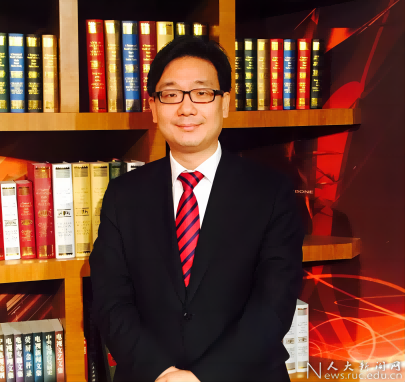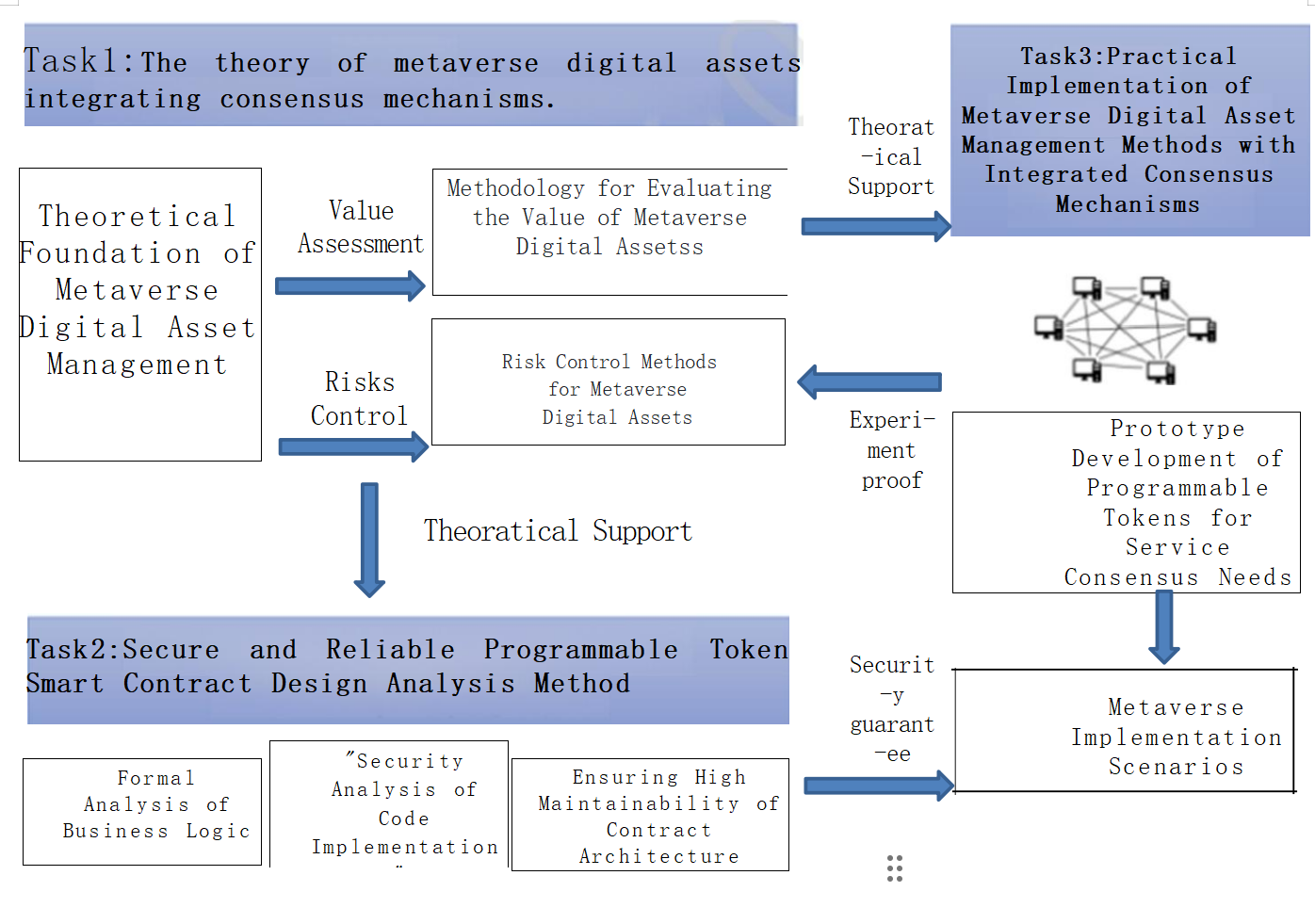Recently, the project "Research on the Theory and Method of Metaverse Digital Asset with Converged Consensus Mechanism," led by Professor Yang Dong of RUC, has been awarded funding by the National Natural Science Foundation of China. This marks the first batch of special projects on "Metaverse Theory and Technology Fundamentals" funded by the National Natural Science Foundation. This special project focuses on the forefront of the metaverse, exploring new research paradigms, related theories, and technologies. Its goals include seeking original breakthroughs in data management and distribution, intelligent perception and interaction, collaborative analysis methods, and modeling theory methods, aiming to provide fundamental theories and key technological support for the development of the metaverse industry.
In recent years, Professor Yang Dong's team has actively engaged in deep cooperation with market entities such as Migu Culture Technology Co., Ltd, Everbright Bank, and Shenzhen Data Exchange, leveraging their independently developed CoKen theory (Collaborative Consensus) to fully participate in the commercialization of data elements in areas such as the metaverse and data circulation to accumulate rich theoretical achievements and practical experience. The overall framework of the "Research on the Theory and Method of Metaverse Digital Assets with Converged Consensus Mechanism" project is based on Professor Yang Dong's team's long-term research and practical foundation in the fields of data elements, blockchain, and the metaverse.
The approval of this project plays an important role in promoting the development of science and technology disciplines of RUC. On one hand, through research on the theory and methods of digital assets in the metaverse, it can accelerate the innovation and development of related technologies such as blockchain, smart contracts, and data elements. The research results can provide theoretical support and decision-making references for the practical development of the metaverse and digital economy in China, contributing significantly to the development of China's related policy formulation, digital economy and digital transformation.
On the other hand, the research of this project involves multiple disciplines such as computer science, mathematics, information management, law, economics, and management. The implementation of the project will promote interdisciplinary integration, further advance the construction of interdisciplinary research teams, and enhance the research level of relevant disciplines, and strengthen competitiveness in related fields. Additionally, the implementation of the project will help cultivate a group of talents who are proficient in both technology and economics, management, and law, meeting the urgent demand of the country and society for talents with combined expertise in science, engineering, and social sciences.

Professor Yang Dong has long been engaged in interdisciplinary scientific research in areas such as blockchain, digital economy, metaverse, and data elements. He was selected for national-level projects of high-level talents and serves as a member of the Expert Consultation Group of the State Council's Anti-Monopoly and Anti Unfair Competition Committee, a member of the Innovation and Entrepreneurship Education Steering Committee of the Ministry of Education, a member of the Expert Committee for High-level Talent Training in Artificial Intelligence of the Ministry of Education, the Founding Executive Committee Member of the China Computer Federation (CCF) Blockchain Special Committee, an Executive Committee Member of the CCF Data Governance Development Committee, a member of the Information and Communication Technology Committee of the Ministry of Industry and Information Technology, a member of the Expert Committee on Communication Economics of the Ministry of Industry and Information Technology, a member of the National Internet Finance Security Technology Expert Committee, a member of the Expert Committee of the National Engineering Laboratory for Big Data Circulation under the National Development and Reform Commission, the Executive Dean of the Blockchain Research Institute of Renmin University of China, and the President of the Beijing Institute of Digital Economy and Digital Governance Legal Research Association, among other positions.
He has undertaken over ten national-level projects including the National Key R&D Program, the National Natural Science Foundation, and the National Social Science Foundation. He has completed several works rooted in the digital economy of socialism with Chinese characteristics, such as "Data Elements Tutorial," "Metaverse Tutorial," and "Metaverse and Data Assets." He has also completed the first comprehensive report on legislative research on the digital economy nationwide.
Professor Yang Dong's pioneering concepts such as "Coken" and "governing the chain with the chain," as well as his suggestions, have received lengthy instructions from the Party and state leaders and have been adopted by the Cyberspace Administration of China, the Ministry of Science and Technology, and others in the form of policies. Particularly, original Chinese data theories such as "Coken" have been implemented in practice by companies like China Mobile.

In the context of rapid development in the metaverse and digital assets, issues of fairness and risk management in metaverse digital asset management are particularly prominent. The introduction of a consensus mechanism can better support fair management of metaverse digital assets and reduce associated risks. However, there are still some urgent issues that need to be addressed. To this end, this project will conduct research from various aspects including theoretical foundation, security assurance, and practical implementation, aiming to develop metaverse digital asset theories and methods integrating consensus mechanisms.
Firstly, this project will establish the theoretical foundation of metaverse digital assets integrating consensus mechanisms, especially focusing on developing methods for digital asset valuation and risk control to provide necessary theoretical support. Secondly, it will conduct research on technologies such as formal analysis of programmable points, security analysis, and contract architecture assurance, to ensure the security and reliability of implementing the aforementioned theories through smart contracts. Lastly, it will construct relevant experimental platforms for specific scenarios such as China Mobile's MIGU Interstellar Plaza, Metaverse Convention Center, and Gulangyu Metaverse, and conduct practical implementation and demonstration applications tailored to real-world scenarios. This aims to verify the correctness and effectiveness of the related theoretical methods in environments with millions of users.
Through research, this project aims to ultimately develop a set of fair, transparent, and trustworthy metaverse digital asset theories and methods that are independently developed in China.


